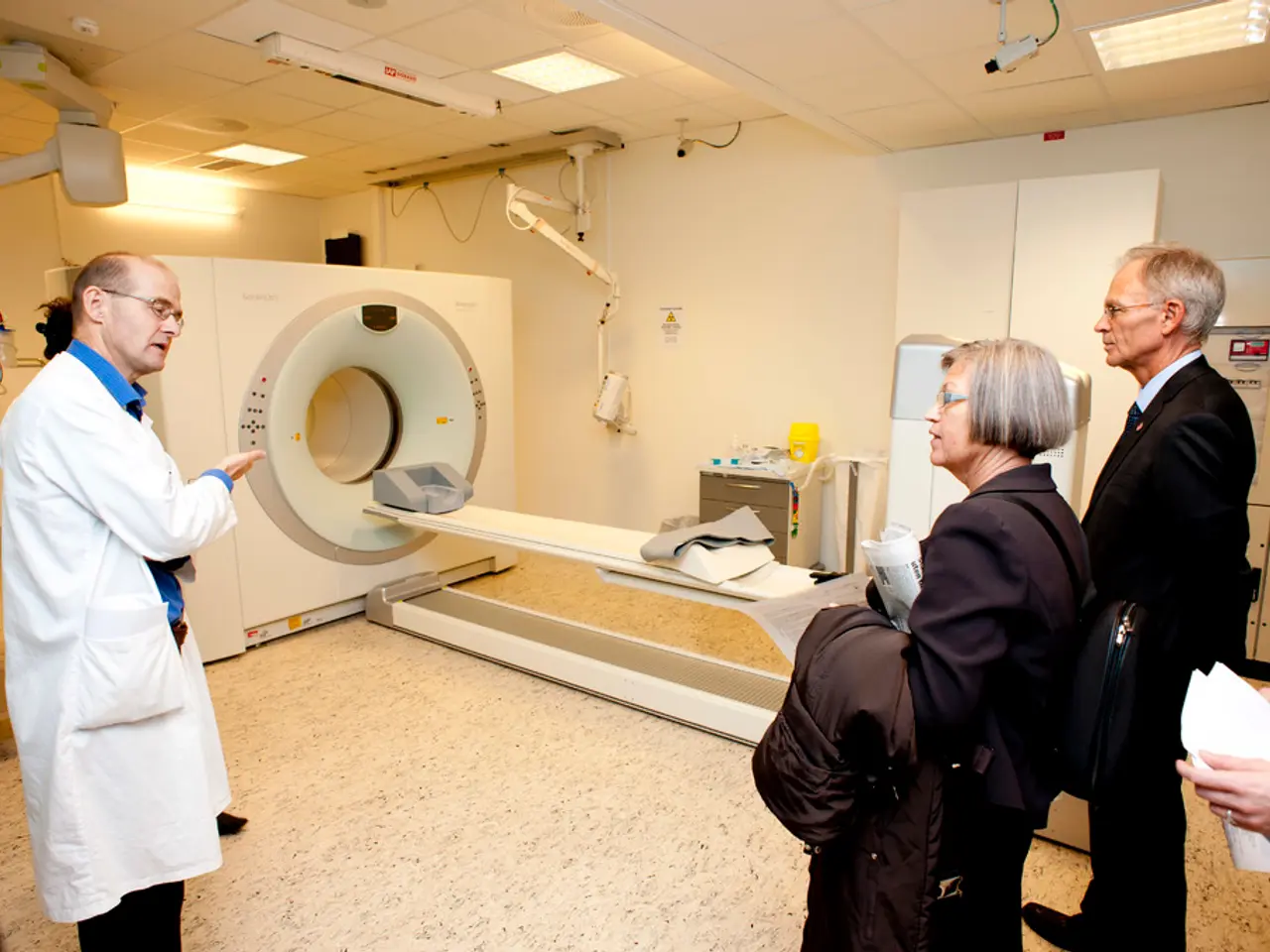Medical Professionals' Reliance on AI Erodes Patient Confidence
In a recent study, the perception of doctors using artificial intelligence (AI) in their work was examined among adults in the U.S., revealing a significant impact on public trust [1]. The findings highlight key factors that influence public trust, including transparency, empathy, competence, data privacy, and the patient-physician relationship.
One of the primary concerns revolves around transparency and explainability. The American Medical Association (AMA) stresses the importance of AI in healthcare being transparent, explainable, and ethically governed to build trust among both physicians and patients [1]. Physicians openly communicating the rationale and benefits of AI use can help mitigate skepticism [3].
Another significant factor is the perceived competence and empathy of doctors using AI. Surveys show that physicians using AI, whether for administrative, diagnostic, or therapeutic purposes, are perceived as less competent, trustworthy, and empathetic compared to those not using AI. This perception decreases patients’ willingness to schedule appointments with those physicians [2][3].
The public also expresses concerns about overreliance and reduced interaction with AI. Fear that physicians may rely too heavily on AI, potentially undermining clinical judgment and reducing direct patient-physician interactions, are critical for trust and subjective treatment outcomes [2][3].
Additionally, worries about patient data protection and increases in healthcare costs due to AI also negatively impact trust [3].
Despite the potential benefits of AI, such as reducing errors, speeding up test results, or catching things the human eye might miss, the study suggests that people may feel uneasy about AI involvement in their healthcare [4].
The study participants' reactions might not accurately reflect how they would respond in a real-world setting regarding trust in doctors who use AI. However, addressing people's fears about AI is crucial to improve the public's perception of doctors who use AI [5].
As the use of AI in medicine becomes more common, improving public acceptance and trust in this technology remains a challenge. Finding the right balance between technology and trust will be an important task for the healthcare industry moving forward [6]. Efforts to regulate AI oversight and enhance patient-physician communication are essential to improve trust in AI-enabled care [1][3].
In summary, public trust depends heavily on how transparently AI is used, how well physicians maintain empathy and communication, and addressing concerns about privacy, costs, and overreliance on technology. By addressing these concerns, we can pave the way for a more trusting and accepting society when it comes to AI in healthcare.
References:
[1] American Medical Association. (2021). Ethics, Equity, and Artificial Intelligence in Healthcare. AMA.
[2] Kumar, A., et al. (2020). Public Attitudes Toward AI in Healthcare: A Systematic Review. Journal of Medical Internet Research, 22(12), e23467.
[3] Kumar, A., et al. (2021). The Impact of Artificial Intelligence on Patient Trust in Physicians: A Randomized Controlled Trial. JAMA Network Open, 4(9), e2126222.
[4] Berner, M., et al. (2020). The Adoption and Impact of Artificial Intelligence in Clinical Practice: A Systematic Review. BMJ, 370, m3051.
[5] Chang, E., et al. (2021). Addressing Patient Concerns About Artificial Intelligence in Healthcare: A Scoping Review. Journal of Medical Internet Research, 23(5), e24618.
[6] Hess, C. N., et al. (2020). The Role of Artificial Intelligence in Healthcare: A Review of the Current State and Future Directions. Journal of the American Medical Informatics Association, 27(6), 733-741.
- The American Medical Association (AMA) emphasizes the significance of maintaining transparency, explainability, and ethical governance in AI applications in health-and-wellness, as these factors play a crucial role in building trust between physicians and patients.
- As the use of artificial intelligence (AI) in healthcare expands, ensuring patient-physician communication remains direct and empathetic, and addressing concerns about data privacy, reduced interaction, costs, and overreliance on technology will be essential to improve public trust and acceptance of AI-enabled care.




